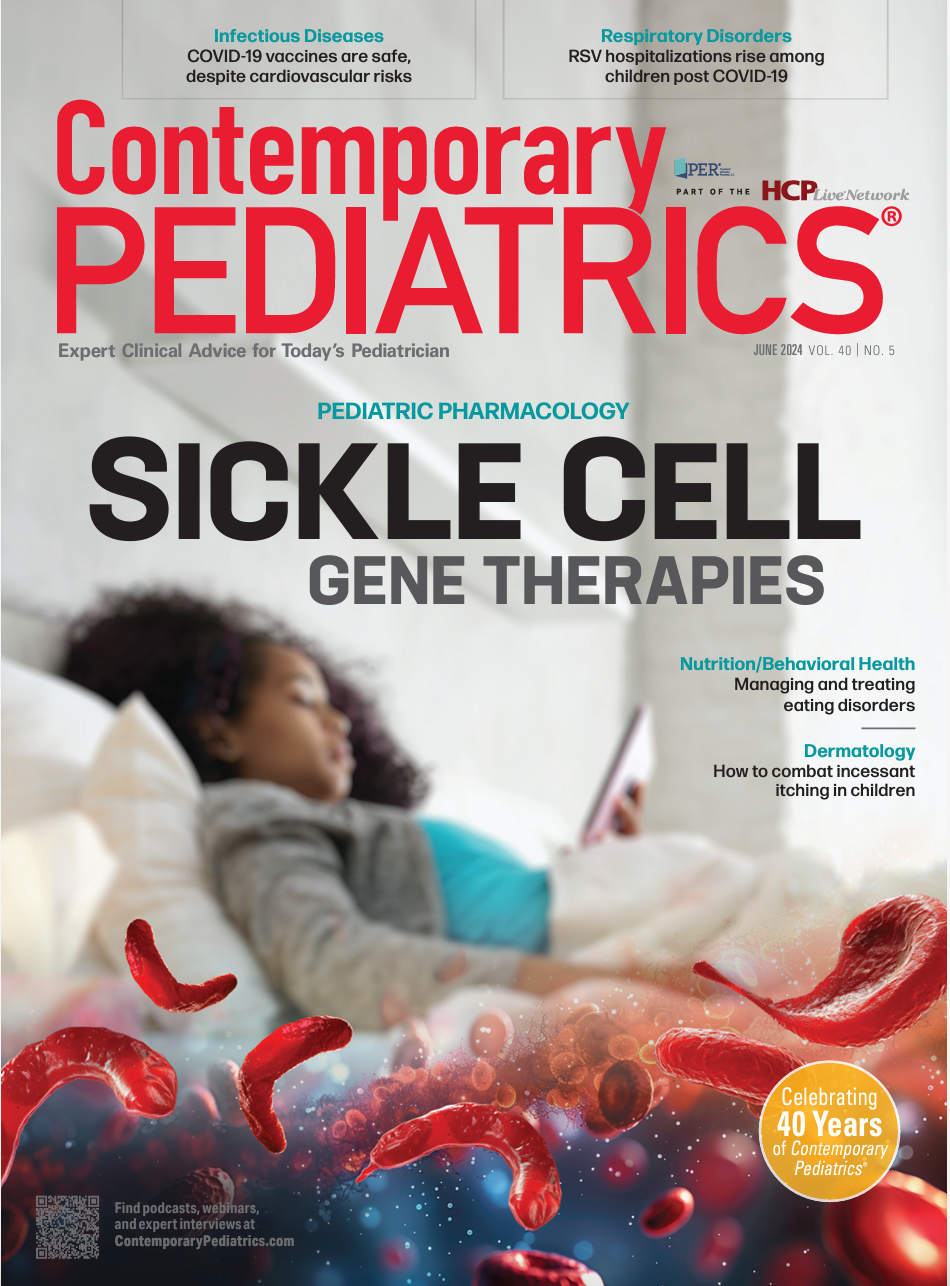COVID-19 vaccines safe for children, despite observed myocarditis, seizure risks
New cohort analyses observe a statistically raised risk of myocarditis, pericarditis and seizures among certain age groups, though the data do not go against FDA recommendations.

Statistical signals for myocarditis or pericarditis among adolescents, as well as seizures in young children, were observed to be elevated—though still rare—among those after receiving an ancestral monovalent COVID-19 vaccines, according to new research.1
A cohort analysis of near-real-time monitoring from a team of US-based investigators across agencies including data analyst group Acumen, CVS Health/Aetna and the US Food and Administration (FDA), among others, showed a statistical signal detected for myocarditis or pericarditis, as well as seizures, following ancestral monovalent COVID-19 vaccination in US children. Though the findings warrant follow-up epidemiological research, the investigators also noted the data should be interpreted with caution due to their methods of only screening for such potential signals in vaccinated children.
“It is not possible to draw any meaningful conclusions about these vaccines in these age groups based on this study,” they noted.
Led by Mao Hu, BS, of Acumen, investigators sought to conduct a near real-time monitoring of health outcomes among the US pediatric population receiving COVID-19 vaccination—either mRNA vaccines BNT162b2 from Pfizer-BioNTech or mRNA-1273 from Morderna, or protein-based NVX-CoV2373 from Novavax. Since these vaccines were first authorized by the FDA to prevent COVID-19 in children and adolescents, their safety has been monitored by the agency’s rapidly-updating Biologics Effectiveness and Safety (BEST) Initiative system.
“This framework is designed to be sensitive enough to rapidly detect less common safety concerns as data accrue,” investigators wrote. “However, results of such a study design do not establish a causal relationship between the vaccines and health outcomes and need to be interpreted with caution because of the limited adjustment for confounding and other forms of bias.”
The team’s new data were results from the expanded monitoring of health outcomes in children post-exposure to monovalent COVID-19 vaccination targeting the original COVID-19 strain. A total of 21 prespecified health outcomes post-exposure were monitored prior to 2023—15 of which underwent sequential testing, and 6 were monitored descriptively due to a lack of historical rates among children. The increased rates of outcomes observed after COVID-19 vaccination were compared with annual historical rates of such outcomes from 2019 and 2020, as well as between April – December 2020 (the pre-vaccine era of the pandemic).
Hu and colleagues observed 4.1 million vaccinated enrollees aged 6 months to 17 years old across 3 applicable databases. Approximately half (50.2%) were male; 95.1% lived in an urban area. All but 2 of the 15 sequentially-tested outcomes did not meet the threshold for a statistical signal indicating worsened outcomes post-vaccination.
The 2 statistical signals were detected for myocarditis or pericarditis events following vaccination with BNT162b2 in children 12 – 17 years old, as well as seizures following vaccination with either BNT162b2 or mRNA-1273 in children aged 2 – 4 or 5 years old.
“Because the myocarditis or pericarditis outcome is a known adverse outcome after COVID-19 mRNA vaccinations, further signal characterization activities were not conducted,” investigators noted. “In the evaluation of the statistical signal for seizure among children aged 2 to 4 or 5 years, none of the prespecified data quality checks, including claims duplication, timing of events within prespecified risk window, and incidence rate ratio estimates, raised any data quality concerns.”
Despite these findings, however, investigators observed in post hoc sensitivity analyses that the statistical signal for seizures was observed only with mRNA-1273 vaccination in this pediatric population relative to 2019 outcome rates.
And though the myocarditis or pericarditis statistical signal resonates with previously published data showing an increased risk in younger males receiving mRNA vaccination,2 the investigators stressed it is a rare occurrence: approximately 39.3 cases per 1 million vaccine doses administered in children aged 5 – 17 years old with 7 days of BNT162b2 vaccination.
“For the myocarditis or pericarditis outcome measured in the inpatient and emergency department settings in the 1 to 7 days after vaccinations, we observed approximately 27.0 inpatient or emergency department cases per million doses in days 1 to 7 after the primary series in children aged 12 to 15 years and 38.2 cases per million doses after the primary series in children aged 16 to 17 years,” they wrote.1 “We did not detect a statistical signal for myocarditis or pericarditis in children younger than 12 years, which is consistent with reports from other surveillance systems.”
Regarding the seizure statistical signal, investigators suggested a more robust epidemiological study into the occurrence may be warranted. They acknowledged their study took a “broad outcome definition” for the event, with a week-long risk window post-vaccination.
“In this cohort study of pediatric enrollees in 3 commercial health insurance databases, we detected a statistical signal for myocarditis or pericarditis in older children, which is consistent with existing literature, and a new statistical signal for seizure in young children, which is being further evaluated in a more robust study,” the team concluded. “The FDA concludes that the known and potential benefits of COVID-19 vaccination outweigh the known and potential risks of COVID-19 infection.”
References
- Hu M, Shoaibi A, Feng Y, et al. Safety of Ancestral Monovalent BNT162b2, mRNA-1273, and NVX-CoV2373 COVID-19 Vaccines in US Children Aged 6 Months to 17 Years. JAMA Netw Open. 2024;7(4):e248192. doi:10.1001/jamanetworkopen.2024.8192
- Krewson C. COVID-19 vaccination recommended for US children 5 to 11 years, despite adverse events. Contemporary Pediatrics. Published August 1, 2022. https://www.contemporarypediatrics.com/view/despite-mild-to-moderate-adverse-events-covid-19-vaccination-recommended-in-united-states-children-aged-5-to-11-years
